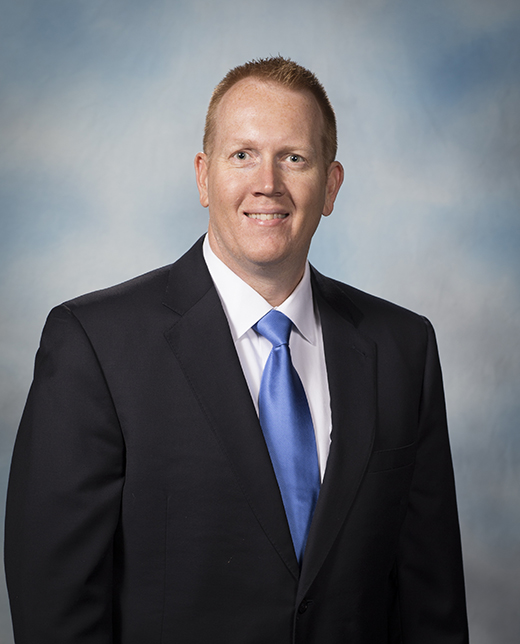Proven techniques can be employed to strengthen your mental health during crisis

This article appeared in the May 2020 edition of the Chickasaw Times
Dr. Paul Emrich, Chickasaw Nation Undersecretary of Mental Health Services, says the Chickasaw people have experienced trying times before and will remain strong in the face of the COVID-19 pandemic.
“The Chickasaw people have been through many difficult times in the past and I think they’re going to continue to be unconquered and unconquerable,” Dr. Emrich said. “This is just an opportunity to be able to show that resilience.”
Dr. Emrich offers concrete tips on dealing with stress and anxiety related to an unparalleled worldwide epidemic.
“One trick is to teach yourself what we call ‘7-11,’” he said. “That is, breathe in through your nose for seven seconds and then breathe out of your mouth for 11 seconds. Repeat that several times and you’ll naturally feel your body relax. It will help you limit stress.”
Inhaling and exhaling slowly helps focus on breathing and redirects thoughts, which allows the body to relax and limits stress.
“Practicing breathing techniques can be very calming,” he said. ‘When we breathe correctly our body naturally will relax. One way to do that is to practice slow, deep breaths, and your body will respond to that.”
Another issue is experiencing physical separation from others at work, church or social organizations. That doesn’t mean connections to others have to be sacrificed.
“One of the problems related to the pandemic we’re facing is feeling disconnected from those we typically encounter and are used to talking to face-to-face, he said.
“But just because we’re social distancing doesn’t mean we have to be emotionally distant. I would encourage people to continue to reach out and connect with those they care about and check in on people.
“Keep having those conversations with people you care for and see if they’re okay. Connectivity is going to help the individual reaching out, but it’s also going to show others you care about them. Connectivity is going to help people get through this.” Enjoying nature and exercise can also be beneficial.
“Exercise is a fantastic way of being able to help refocus and relax,” he said. “You can go for a walk. You can sit outside. Fresh air activities are helpful for relieving stress. We just want to maintain a safe and appropriate distance from those around us. It’s okay to go for a short drive or sit on the front porch or front yard.”
Dr. Emrich advises paying attention to trusted sources of information such as Chickasaw.net, which features the most up to-date information on COVID-19 available.
Outpatient services are available for any Native American and their family members by calling (580) 436-1222. “Strong Foundation” is a program for Chickasaw Nation employees and can be accessed by calling (580) 272-5170.
“Historically, we’ve been providing these services face-to-face in an office setting,” Dr. Emrich said. “If people are quarantined and can’t come to an office, we’re making ourselves available through a telehealth platform to be able to talk to people, either with videoconferencing or over the phone.”
Non-native citizens can contact the Substance Abuse and Alcohol Services Administration disaster distress hotline at 1-800-985- 5990.
“That’s available for anyone across the country who may be needing services,” he said. Faith and a positive attitude can also be key components in dealing with illness.
“Even when you find out you may be ill, staying positive has been shown by research to help people be able to overcome illness,” he said. “Besides staying positive, always listen to instructions of your health care provider and do what they ask you to do.
“Regarding faith, I think it’s important to have hope and belief we’re going to get through this. We’re all in this together. We all can rely on the Lord to be able to help us through this situation.”